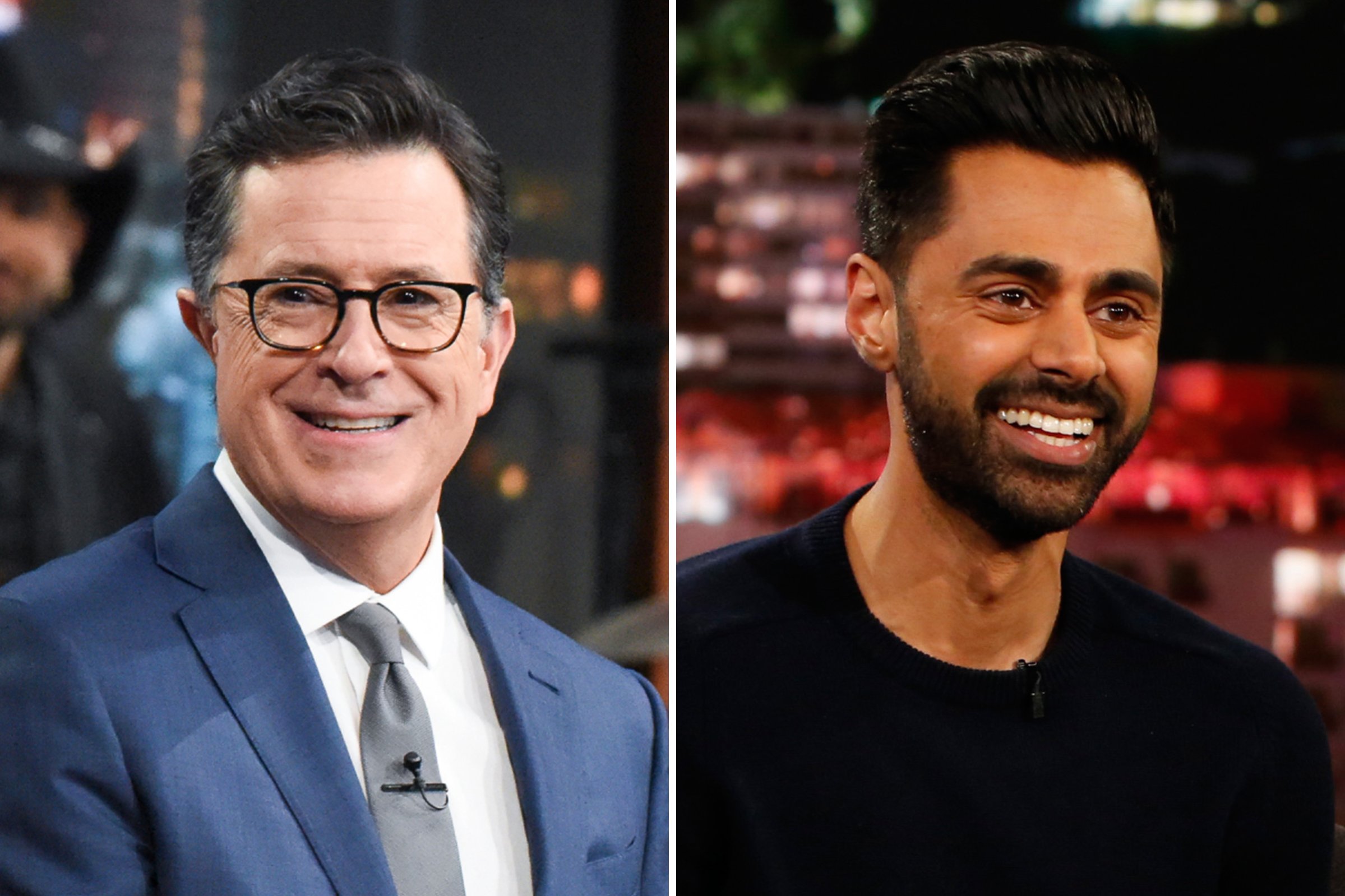
TV news is a circus on Election Night. In one ring, you’ve got every channel’s designated wonk poking at a map; in another, a parade of victory and concession speeches streams in from around the country. And at center stage, there’s the obligatory panel of bellowing pundits, with some hapless anchor as ringmaster. “There’s like 18 people on a panel,” cable-news veteran Soledad O’Brien complained to Seth Meyers last night, before venturing that “viewers also hate the panels. Because the panels, especially on Election Night, they’re just filling time.”
O’Brien claimed to have abandoned those panels to follow the news on Twitter—which surely says more about the level of chaos in TV newsrooms than it does about the civility of partisan discourse on the internet. But the venue in which she’d chosen to comment on the midterms also proved to be a refreshingly sane platform for real-time analysis of the results. Presumably encouraged by viewers’ embrace of their hosts’ earnest Trump-era political polemics, Meyers’ Late Night, The Daily Show With Trevor Noah, The Late Show With Stephen Colbert and Jimmy Kimmel Live! (which, contrary to its title, is usually taped) all aired live on Election night.
The episodes’ attempts at humor weren’t especially funny or original. Just about every show poked fun at “I Voted” sticker selfies and did an election-related riff on Idris Elba being named People’s Sexiest Man Alive. While Colbert drowned his disappointments in quality whisky, O’Brien introduced Meyers to the dangerously sweet heat of Fireball. Kimmel got his guest Sacha Baron Cohen to revive his politically incorrect Kazakh journalist character Borat, for videotaped chats with Republican voters that devolved into some dispiriting cracks about Melania Trump’s “pubis.” The Daily Show and Kimmel did strikingly similar graphics gags, in which red-vs.-blue maps zoomed in to invade a swing voter’s home. And, of course, everyone got in their Ted Cruz sucker punch (though I laughed harder at Karl Rove, on Fox News, gloomily declaring Beto O’Rourke’s near win a measure of “the enormous unpopularity of Ted Cruz” than at any real jokes about the senator).
It’s a testament to just how much the tone of late-night TV has changed over the past two years—and how much it has been influenced throughout the 21st century by highly politicized comedy-news series like The Daily Show and its heirs, including TBS’s feminism-forward Full Frontal With Samantha Bee and HBO’s nerdily in-depth Last Week Tonight With John Oliver—that the interview segments were so much more successful. Instead of watching a dozen pundits fight for the floor on ABC, whose massive, blindingly bright studio set suggested a high school debate tournament in some dystopian future, or trying to decode what MSNBC’s Chris Matthews meant when he described Missouri as “a buckin’ bronco… or a Missouri mule,” viewers could turn to Jimmy, Seth, Stephen or Trevor for calm conversations between a few relatively well-informed people.
Meyers and O’Brien got granular on voter suppression. Colbert’s guests included Daily Show alum and newly minted Netflix talk-show host Hasan Minhaj alongside Alex Wagner and John Heilemann, journalists who host Showtime’s The Circus. While Wagner pointed out that Democrats’ House wins were a “BFD” amid gerrymandering that favored the GOP, her colleague summed up his takeaways: “It’s not a tsunami, but it’s not a puddle,” Heilemann said of 2018’s “blue wave,” arguing that it had yielded “enough of a margin to be able to maybe, occasionally get something done [and] make Donald Trump’s life miserable.” And on The Daily Show, Noah sat down with Jamil Smith of Rolling Stone, who offered the most astute synthesis of the election’s mixed results that I heard all night: “This is the beginning of the fight,” he said, declaring Trump’s “legislative agenda” moot. “But don’t cheer yet,” Smith warned, “because that gives him a lot of time to do other things—like start more wars.”
With ABC, NBC and CBS all earning significantly higher late-night ratings this year than they did after the 2014 midterms, it’s clear that more Americans than ever are looking to comedy shows in the wake of major political events. Media critics used to see this trend, exemplified by the George W. Bush-era scandal of young people getting their news from Jon Stewart instead of Tom Brokaw, as a minor crisis. But in 2018—when the internet is a more timely news source than TV, cable pundits often sound sillier than their comedian counterparts and talk-show hosts speak from the heart on healthcare and other emotional issues—it doesn’t seem like such a terrible thing. What’s the harm in coming to late night for empathy and insight when the rest is just noise?
More Must-Reads from TIME
- Why Trump’s Message Worked on Latino Men
- What Trump’s Win Could Mean for Housing
- The 100 Must-Read Books of 2024
- Sleep Doctors Share the 1 Tip That’s Changed Their Lives
- Column: Let’s Bring Back Romance
- What It’s Like to Have Long COVID As a Kid
- FX’s Say Nothing Is the Must-Watch Political Thriller of 2024
- Merle Bombardieri Is Helping People Make the Baby Decision
Contact us at letters@time.com